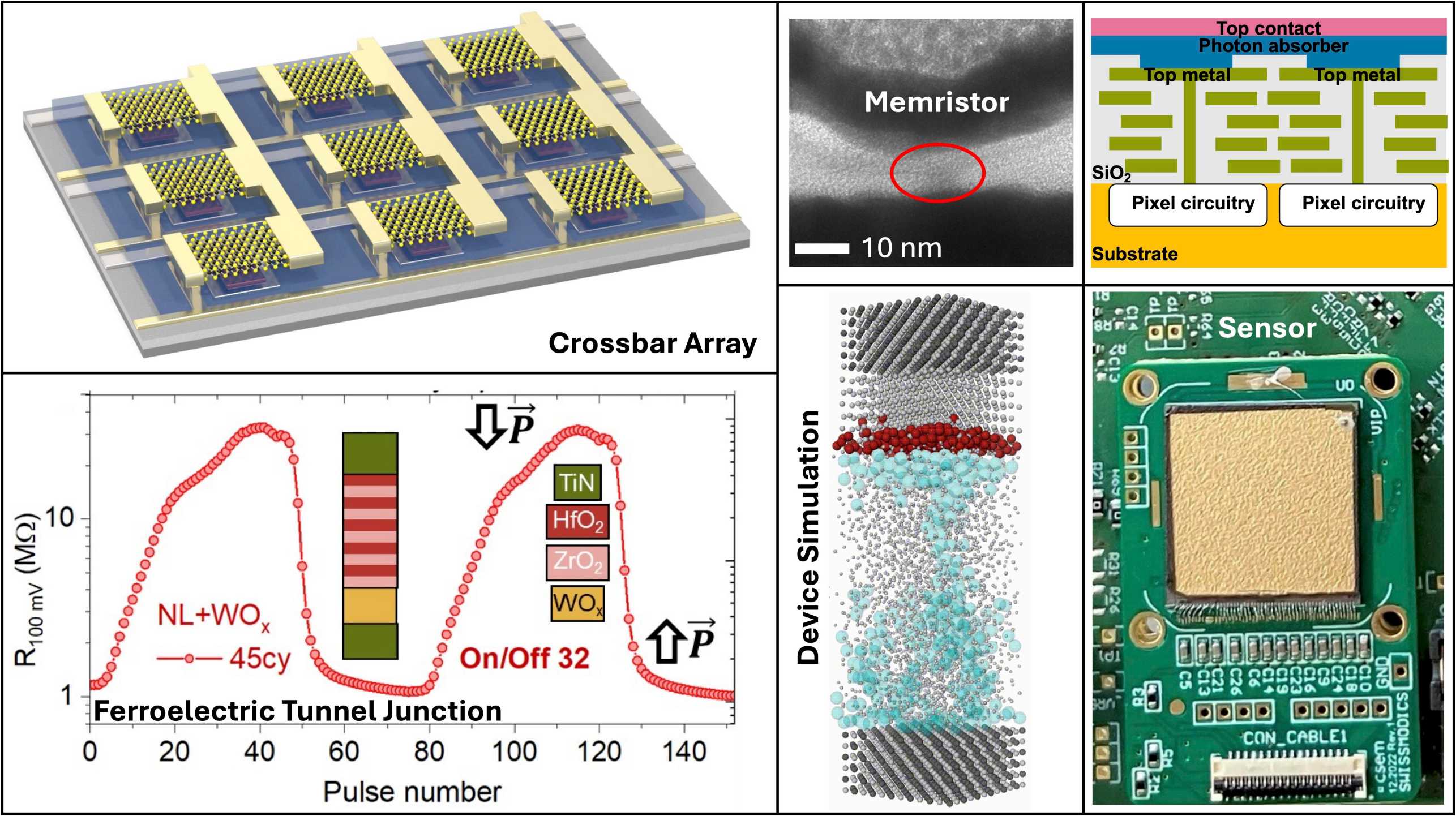WP8: Devices and Sensors
WP8 focuses on “more-than-Moore” technologies including i) memristors, for non-volatile data storage and neuromorphic computing, ii) advanced sensors with enhanced (quantum) efficiency, and iii) new materials with applications in power electronics and sensing.

The semiconductor industry is entering a new era called “more-than-Moore,” where nanoscale devices implementing novel functionalities are integrated with standard CMOS circuits, typically in the back end of line (BEOL). At the same time, there is an increased interest in new materials as an alternative to silicon technology. Several initiatives in Europe, the US, and China are pushing for the development of such “more-than-Moore” technologies. WP8 focuses on three of them, (i) emerging memory technologies called memristors for non-volatile data storage and neuromorphic computing, (ii) advanced sensors with enhanced (quantum) efficiency, and (iii) new materials with applications in power electronics and sensing. This work package articulates itself around six thrusts: two are dedicated to memristors and their combination into crossbar arrays, three to “conventional” sensors, one to sensors based on memristive devices, and one on IC technology based on alternative substrates. In all thrusts, memristors and sensors will be fabricated, characterized, organized in larger structures, if possible, integrated with CMOS circuits, tested in real-world cases, and their performance compared to the state of the art. Special emphasis is set on ultra-low-power consumption for edge-computing applications.
WP8 Lead: Prof. Mathieu Luisier
Mathieu Luisier leads the Computational Nanoelectronics (NANO-TCAD) group under the Integrated Systems Laboratory at ETH Zurich. His group develops and applies numerical algorithms to investigate nanodevices ranging from next generation transistors and memory cells to optoelectronic devices.
Contact: Mathieu Luisier
WP8 Co-lead: Prof. Adrian M. Ionescu
Adrian Ionescu leads the external page Nanoelectronic Devices Laboratory (NanoLab) at external page EPFL. His group works in the areas of advanced nanoelectronics, with special emphasis on the technology, design and modelling of nanoscale solid-state devices.
Contact: external page Adrian M. Ionescu
WP8 Task Leaders & Senior Collaborators
WP8 Students, Postdocs & Affiliated Researchers
- Dr. Kevin Portner, Postdoc, Supervisor: Prof. Mathieu Luisier
- Dr. Christoph Weilenmann, Postdoc, Supervisor: Prof. Mathieu Luisier
- Dr. Nikhil Garg, Postdoc, Supervisor: Prof. Laura Bégon-Lours
- Klemens Bauer, Supervisor: Prof. Mathieu Luisier
- Alexandre Baigol Sisó, PhD student, Supervisor: Prof. Laura Bégon-Lours
- Alexander Flasby, PhD student, Supervisor: Prof. Laura Bégon-Lours
- external page Eloi Collette, PhD student, Supervisor: Prof. Andras Kis
- external page Dr. Chun-Min Zhang, Postdoc
- external page Enrico Miotello, PhD student, Supervisor: Dr. Amrith Sukumaran
- Özcan Urhan, PhD student, Supervisor: Dr. Amrith Sukumaran
- Manuel Belanche, PhD student, ETH, Supervisor: Prof. Ulrike Grossner